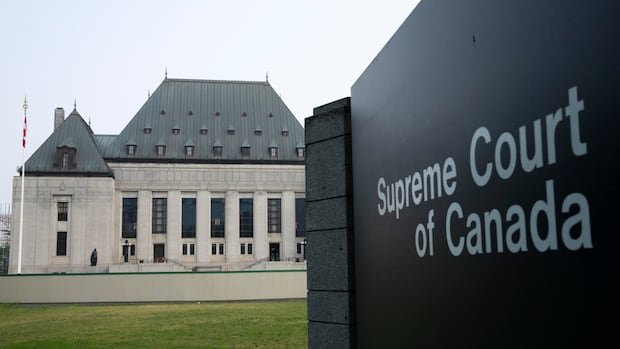In an Alberta case involving historical sexual abuse, the Supreme Court of Canada has emphasized the necessity for courts to address sexual offences against children. Paul Sheppard, who was recently granted full parole but was subsequently ordered to surrender to authorities, had his original six-year sentence restored by the Supreme Court after a Crown appeal was allowed unanimously. Sheppard, currently in his 60s, was convicted of sexual interference and invitation to sexual touching against Steacy Easton, a Grade 7 student at the now-closed Saint John’s School of Alberta in the early 1990s.
The Supreme Court’s decision highlighted various concerns with the Alberta Court of Appeal’s 2023 ruling that reduced Sheppard’s sentence. Chief Justice Richard Wagner pointed out that the appeal court’s majority decision contained references to outdated beliefs and stereotypes about sexual abuse victims, stating that the credibility of a complainant should not be doubted based on their reaction to the abuse. The Court also noted that Sheppard had a history of abusing children while in positions of power, information that had not been disclosed during the trial or appeal process.
Steacy Easton, the victim, successfully applied to lift the publication ban on their name in 2021. In an interview, Easton expressed gratitude for the corrective measures but voiced frustration over the prolonged court proceedings and the lack of input they had in the legal process. Easton acknowledged the importance of being believed and the dismantling of misconceptions about “perfect victims” but highlighted the continued lack of autonomy for victims in the legal system.
During the Supreme Court hearing, questions were raised about Sheppard’s previous criminal convictions, including sexual assault and assault charges from the 1980s when he worked briefly as a police officer in Stratford, Ontario. Although Sheppard’s prior convictions were not disclosed during his 2021 trial, the Parole Board of Canada did consider his past criminal history in their decisions. The Court also mentioned Sheppard’s acquittal in 2015 on sexual abuse charges related to his time at a boarding school in the UK.
The Raoul Wallenberg Centre for Human Rights intervened in the Supreme Court case, criticizing the Alberta Court of Appeal’s reliance on misconceptions about sexual violence. The Centre’s chief general counsel, Angela Marinos, emphasized the gravity of historical sexual offences against children and stressed the importance of accountability in sentencing. Marinos highlighted the Supreme Court’s directive to increase sentences for sexual offences against children, emphasizing the long-lasting impact of such crimes on survivors and the need for judicial acknowledgment.
In conclusion, the Supreme Court’s decision in the Alberta sexual abuse case has brought attention to the complexities of handling sexual offences against children and the importance of dispelling myths and stereotypes surrounding sexual abuse complainants. The ruling underscores the significance of accountability in sentencing and the ongoing effort to support survivors of sexual violence in their healing process.

